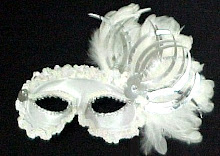
Hamlet
Introduction:
The American actor Edwin Booth as Hamlet, c. 1870 (Photographer: unknown)
Hamlet is a tragedy by William Shakespeare, believed to have been written between 1599 and 1601. The play, set in Denmark, recounts how Prince Hamlet exacts revenge on his uncle Claudius, who has murdered Hamlet's father, the King, and then taken the throne and married Hamlet's mother. The play vividly charts the course of real and feigned madness—from overwhelming grief to seething rage—and explores themes of treachery, revenge, incest, and moral corruption.
Despite much literary detective work, the exact year of writing remains in dispute. Three different early versions of the play have survived: these are known as the First Quarto (Q1), the Second Quarto (Q2) and the First Folio (F1). Each has lines, and even scenes, that are missing from the others. Shakespeare probably based Hamlet on the legend of Amleth, preserved by 13th-century chronicler Saxo Grammaticus in his Gesta Danorum and subsequently retold by 16th-century scholar François de Belleforest, and a supposedly lost Elizabethan play known today as the Ur-Hamlet.
Given the play's dramatic structure and depth of characterization, Hamlet can be analyzed, interpreted and argued about from many perspectives. For example, commentators have puzzled for centuries about Hamlet's hesitation in killing his uncle. Some see it as a plot device to prolong the action, and others see it as the result of pressure exerted by the complex philosophical and ethical issues that surround cold-blooded murder, calculated revenge and thwarted desire. More recently, psychoanalytic critics have examined Hamlet's unconscious desires, and feminist critics have re-evaluated and rehabilitated the often maligned characters of Ophelia and Gertrude.
Hamlet is Shakespeare's longest play, and among the most powerful and influential tragedies in the English language. It provides a storyline capable of "seemingly endless retelling and adaptation by others".[1] During Shakespeare's lifetime the play was one of his most popular works,[2] and it still ranks high among his most-performed, topping, for example, the Royal Shakespeare Company's list since 1879.[3] It has inspired writers from Goethe and Dickens to Joyce and Murdoch, and has been described as "the world's most filmed story after Cinderella".[4] The title role was almost certainly created for Richard Burbage, the leading tragedian of Shakespeare's time.[5] In the four hundred years since, it has been played by the greatest actors, and sometimes actresses, of each successive age.
Quotes
To be, or not to be: that is the question". - (Act III, Scene I).
"Neither a borrower nor a lender be; For loan oft loses both itself and friend, and borrowing dulls the edge of husbandry". - (Act I, Scene III).
"This above all: to thine own self be true". - (Act I, Scene III).
"Though this be madness, yet there is method in 't.". - (Act II, Scene II).
"That it should come to this!". - (Act I, Scene II).
"There is nothing either good or bad, but thinking makes it so". - (Act II, Scene II).
"What a piece of work is man! how noble in reason! how infinite in faculty! in form and moving how express and admirable! in action how like an angel! in apprehension how like a god! the beauty of the world, the paragon of animals! ". - (Act II, Scene II).
"The lady doth protest too much, methinks". - (Act III, Scene II).
"In my mind's eye". - (Act I, Scene II).
"A little more than kin, and less than kind". - (Act I, Scene II).
"The play 's the thing wherein I'll catch the conscience of the king". - (Act II, Scene II).
"And it must follow, as the night the day, thou canst not then be false to any man". - (Act I, Scene III)."This is the very ecstasy of love". - (Act II, Scene I).
"Brevity is the soul of wit". - (Act II, Scene II).
"Doubt that the sun doth move, doubt truth to be a liar, but never doubt I love". - (Act II, Scene II).
"Rich gifts wax poor when givers prove unkind". - (Act III, Scene I).
"Do you think I am easier to be played on than a pipe?" - (Act III, Scene II).
"I will speak daggers to her, but use none". - (Act III, Scene II).
"When sorrows come, they come not single spies, but in battalions". - (Act IV, Scene V).









